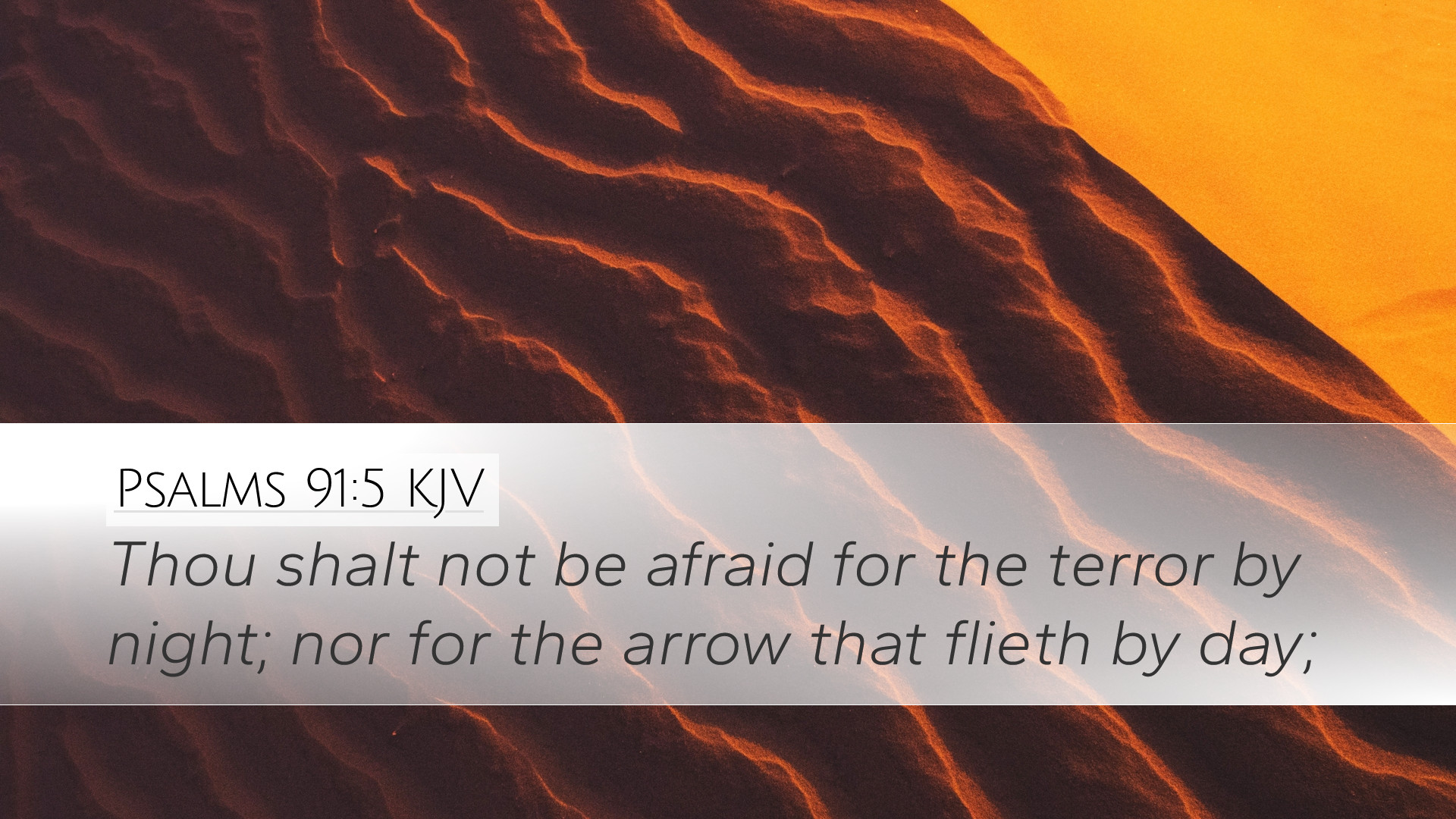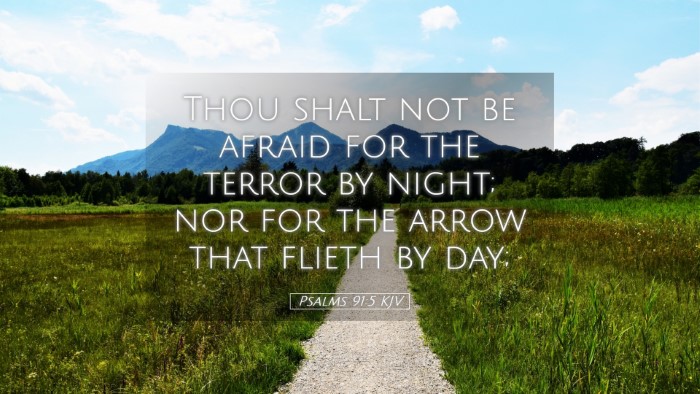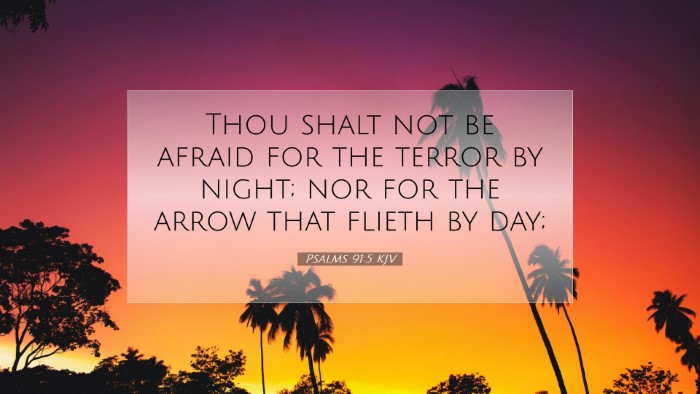Commentary on Psalms 91:5
Psalms 91:5: "Thou shalt not be afraid for the terror by night; nor for the arrow that flieth by day."
Introduction
This verse is a significant part of Psalm 91, which emphasizes God's protection and refuge for those who trust in Him. In this commentary, we will explore the profound meanings of this verse as articulated by various theologians—Matthew Henry, Albert Barnes, and Adam Clarke.
Exegesis of Psalms 91:5
Psalms 91:5 addresses the fears that plague human existence, particularly those we face in the darkness of night and the uncertainties of day. The verse presents a contrast between fear and faith, emphasizing that believers are promised divine protection against both spiritual and physical dangers.
Matthew Henry's Insights
Matthew Henry noted that this verse reassures believers of their safety under God's wings. He elaborated on the various forms of fear that plague humanity:
- Terror by night: Refers to those fears that arise in the stillness and darkness, often associated with anxieties that disrupt peace.
- Arrow that flieth by day: Symbolizes unexpected attacks, whether literal or metaphorical. Henry emphasized that the arrow represents harm that can come from various sources, including enemies, sickness, or personal trials.
Henry concluded that believers do not need to succumb to these fears, as God is a shield and fortress, providing refuge and assurance that He watches over them at all times.
Albert Barnes on Assurance
Albert Barnes provides a straightforward interpretation that highlights the duality of fear found in this verse. He wrote:
- Night terrors: Barnes related this to the spiritual turmoil and fears that keep individuals awake at night. He noted that these fears can be deeply personal and sometimes rooted in guilt, past experiences, or unresolved issues.
- Daytime fears: The 'arrow that flieth by day' signifies worries about the future. Barnes described this as the cares of the world and how they can invade a believer’s life throughout the day.
In this context, Barnes affirmed that faith is the antidote to these fears, encouraging believers to trust in God's providential care at all times, whether day or night.
Adam Clarke's Caution and Comfort
Adam Clarke took a more nuanced approach, delving deep into the emotional and psychological implications of fear. He stressed:
- Caution against fear: Clarke recognized that fear can often lead to paralysis in action and decision-making. He encouraged believers to remember God’s promises, as recalling these assurances can replace fear with courage.
- Source of comfort: Clarke indicated that rather than being a mere dismissal of fear, the verse is an invitation to trust. He explained that acknowledging the presence of fear while simultaneously anchoring one’s faith in God leads to true peace.
This dual recognition of fear and faith can cause believers to experience a profound sense of safety, culminating in a life led by confidence rooted in trust in God’s protection.
Application for Believers
In application, Psalms 91:5 serves as a timeless reminder for pastors, students, theologians, and Bible scholars:
- Trust in God's Protection: Believers are called to trust God amid life's uncertainties. The assurance that God is watching over them can serve as an anchor during turbulent times.
- Overcoming Fears: The verse calls believers to confront their fears—be it psychological, spiritual, or situational—with faith. Recognizing that fear is a natural human response can help them take proactive steps to trust God more fully.
- Encouragement for Others: Those in leadership or teaching roles are reminded of the importance of conveying comfort and assurance to others, reflecting the protection and peace that comes from God.
Conclusion
Psalms 91:5 is a powerful affirmation of God's protective presence. The insights from Matthew Henry, Albert Barnes, and Adam Clarke reveal deep spiritual truths about fear and assurance. For believers, this verse evokes a sense of security that transcends both night and day challenges, encouraging a faith that fosters courage and resilience.


